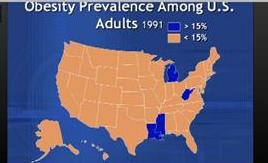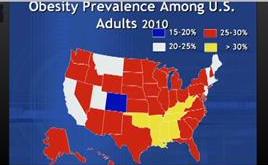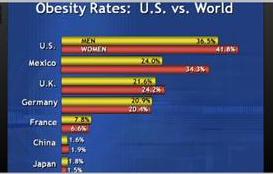 I belong to a group called Vistage. It’s an international membership club whose mission is to help CEOs become better leaders, make better decisions, and achieve better results. We recently heard a talk by board member Michael Milken, who in recent decades has made it his mission – primarily through the Milken Institute – to address social and economic challenges from energy security to poverty, here in the United States and around the world.
I belong to a group called Vistage. It’s an international membership club whose mission is to help CEOs become better leaders, make better decisions, and achieve better results. We recently heard a talk by board member Michael Milken, who in recent decades has made it his mission – primarily through the Milken Institute – to address social and economic challenges from energy security to poverty, here in the United States and around the world.
These are the kinds of challenges that require Tipping Point-type momentum, so I imagine that the goal of the talk to Vistage members was to try to influence those who can influence others to take action. I figured I’d better do my part. As an employer, I can influence about a dozen people, but as a publisher, I have access to thousands. Many of you also influence tens, hundreds or thousands. You’ll have to tell me whether I have had any influence, but here is some food for thought.
Milken spoke about a range of core problems facing the United States: housing, entitlements, education, health, immigration and energy. It was very daunting, as these are all systemic, huge in scale, and very political topics. The debt collection industry is already dealing with its own systemic and very political issues, so we are all too familiar with “daunting”. Well, these societal challenges are far bigger than having a plain English credit card agreement or updating the FDCPA so that collectors can reach consumers on a cell phone.
All of the topics Milken highlights are extremely compelling. For this post, however, in honor of our current Healthcare Issue focus, I’ll just address his thoughts on healthcare.
It’s no secret that Americans are getting bigger. I was struck by how quickly this has happened and by the size of the impact on healthcare spending.
In 1991, only four states had an obesity rate of over 15%. Within just 20 years, there are zero states that have an obesity rate of only 15%. In other words, in every single state in the nation – including the healthiest state, Colorado – at least 15-20% of the population is considered to be obese. In the majority of states, the figure is 25-30%.
This makes us the fattest nation in the world. What’s the problem? Fat does not equal nimble. Fat does not equal energetic. Fat uses energy, in many different ways.
Let’s add some perspective to these figures. Healthcare accounts for $1 of every $6 spent in the U.S., or approximately $2.5 trillion. Of that, 70% is spent on lifestyle-related diseases caused by smoking, poor diet and lack of exercise, versus 30% spent on hereditary diseases. Wow. Think about your company spending $1 of every $6 on activities that don’t move you forward, but simply cover for lessons learned in the past (I could call them mistakes, but let’s be more glass-half-full).
How did we get so big? My husband gets annoyed with me when I “ruin” a great meal (i.e. there’s steak involved) or dessert for him by reminding him that it’s fattening. I don’t like being a nag, but geez, it’s like he thinks I put the calories in the food! Does this sound familiar?
 I joke about it, but this is an overwhelming problem. Many people lack the access or resources to have a regular supply of fruits, vegetables and other healthy foods (probably they are spending what money they have on the phone bill or the rent). Others lack the education about what’s healthy and what’s not, or maybe they don’t have a nag like me in the family. And then there is exercise – a whole other topic.
I joke about it, but this is an overwhelming problem. Many people lack the access or resources to have a regular supply of fruits, vegetables and other healthy foods (probably they are spending what money they have on the phone bill or the rent). Others lack the education about what’s healthy and what’s not, or maybe they don’t have a nag like me in the family. And then there is exercise – a whole other topic.
It’s extremely difficult to change behavior, however as a society, we have in fact achieved meaningful progress in three areas: seat-belt use, smoking reduction and recycling. It turns out all of these changes were driven by children telling their parents what to do.
So what is our role as leaders to contribute to the “tipping point” for this issue? We can educate our families? How about our employees (here’s an interesting ARM industry example: “Collection Agency Employees Happy to be Big Losers in Weight Watchers at Work Program“)? How about affecting our schools — what they serve for lunch, what they teach about the relationship between food, health, achievement, and even personal finance? How about a really crazy thought: could our collectors influence consumers? (I know, it may indeed be crazy but I wonder how many don’t have the ability to pay because the money is going to other unhealthy lifestyle-related expenses.)




![Stephanie Eidelman [Image by creator from ]](/media/images/Stephanie_Eidelman-12.8.19.7e612703.fill-500x500.jpg)




![[Image by creator from ]](/media/images/2015-04-cpf-report-training-key-component-of-s.max-80x80_F7Jisej.png)


![[Image by creator from ]](/media/images/Collections_Staffing_Full_Cover_Thumbnail.max-80x80.jpg)
![Report cover reads One Conversation Multiple Channels AI-powered Multichannel Outreach from Skit.ai [Image by creator from ]](/media/images/Skit.ai_Landing_Page__Whitepaper_.max-80x80.png)
![Report cover reads Bad Debt Rising New ebook Finvi [Image by creator from ]](/media/images/Finvi_Bad_Debt_Rising_WP.max-80x80.png)
![Report cover reads Seizing the Opportunity in Uncertain Times: The Third-Party Collections Industry in 2023 by TransUnion, prepared by datos insights [Image by creator from ]](/media/images/TU_Survey_Report_12-23_Cover.max-80x80.png)
![[Image by creator from ]](/media/images/Skit_Banner_.max-80x80.jpg)
![Whitepaper cover reads: Navigating Collections Licensing: How to Reduce Financial, Legal, and Regulatory Exposure w/ Cornerstone company logo [Image by creator from ]](/media/images/Navigating_Collections_Licensing_How_to_Reduce.max-80x80.png)